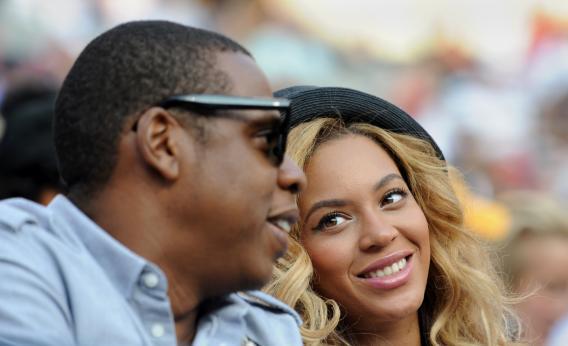A few weeks after they named their baby Blue Ivy, Jay Z and Beyonce filed an application to trademark her name. They weren’t the first. A fashion designer had already tried to trademark “Blue Ivy Carter NYC” and someone else asked for “Blue Ivy Carter Glory IV” for a line of perfumes. Apparently famous parents with a taste for the original in names have to issue a preemptive strike.
Actually, the U.S. trademark office already said no to the imposter filings, because the office is supposed to block trademarks that will make buyers think a product is approved by a celebrity who hasn’t actually signed off. That seems like the right rule. But if the trademark office is already enforcing it, why do Jay Z and Beyonce think they need to do more?
Fordham law school professor Sonia Katyal explains: “When you register a mark for federal protection, you get the ability to stop anyone from using a similar mark throughout the country.” With their Blue Ivy trademark, Beyonce and Jay Z would be the only ones who could use the name in connection with certain goods and services–in this case, baby stuff. “it also conveys a certain kind of recognition,” Katyal says.
Beyonce and Jay Z could market Blue Ivy products, or they could just stop other people from doing that. Angelina Jolie tried to do the latter after her baby Shiloh was born. A French perfume maker wanted to use the name for a scent that was in development, and said it was a coincidence that the names were the same. Jolie filed in opposition to the perfume maker, but later dropped it. Just don’t think of her baby when you wear Shiloh perfume.
One more wrinkle from Katyal: To register a surname as a trademark, you need evidence of “secondary meaning.” That means the name has to be associated with your brand because of advertising or long-time use. Once you’ve proved that and gotten your trademark, other people can’t use the surname on confusingly similar goods, even if they have the same name. “That’s why Jane McDonald could not open a restaurant called “MCDONALDS”,and Joel Hyatt can’t open HYATT MOTEL,” as the website Bitlaw puts it.
